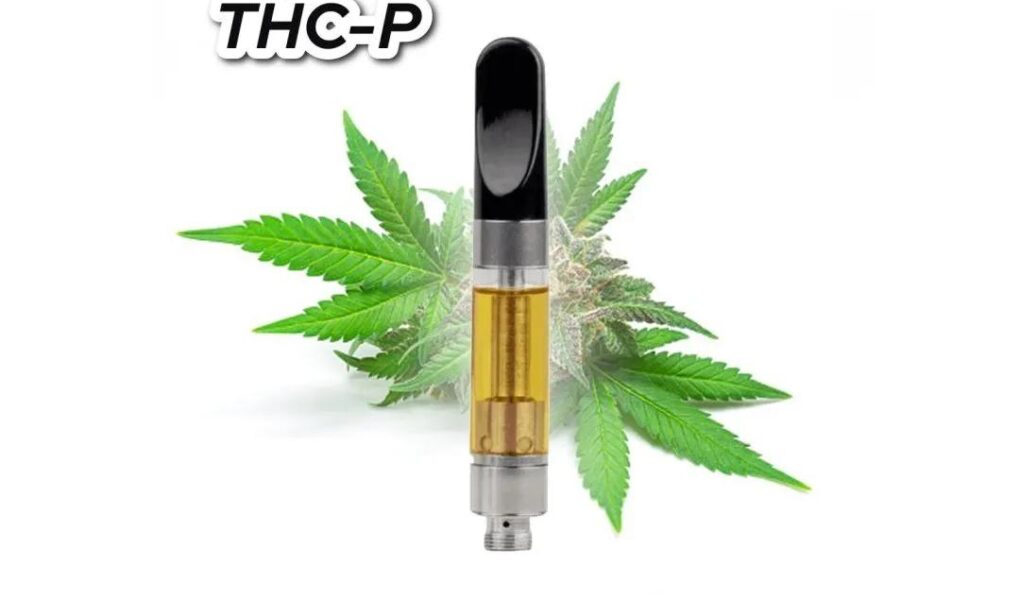In the vast landscape of modern pharmacology and recreational substances, few compounds have sparked as much intrigue and debate as tetrahydrocannabinol, commonly known as THC. As the primary psychoactive component of cannabis, THC has transcended its origins in the marijuana plant to become a focal point of discussions surrounding health, legality, and culture. For many, it conjures images of a carefree lifestyle, while for others, it raises serious concerns about health implications and societal impacts. In this article, we will demystify THC, exploring its chemical nature, effects on the human body, therapeutic potential, and the evolving legal landscape surrounding its use. Join us as we peel back the layers of this compelling compound to understand what THC truly is and its place in our world.
Table of Contents
- Understanding the Nature of THC and Its Origin
- The Role of THC in the Human Body: Effects and Mechanisms
- Exploring Medical Applications of THC in Therapeutic Practices
- Navigating Legal and Safe Consumption Guidelines for THC
- Q&A
- Future Outlook
Understanding the Nature of THC and Its Origin
Δ9-tetrahydrocannabinol (THC) is a pivotal compound found in the Cannabis sativa plant, renowned for its psychoactive properties. As one of the many cannabinoids present, THC interacts primarily with the body’s endocannabinoid system, particularly targeting the CB1 and CB2 receptors found throughout the brain and immune system. This interaction not only evokes the characteristic ‘high’ associated with cannabis use but also plays a role in numerous physiological processes. Understanding its natural origins reveals that THC is synthesized via a series of complex biochemical reactions that transform the raw components of the cannabis plant, highlighting the intricate relationship between botany and neurology.
Exploring the origin of THC leads us down a fascinating path of genetic evolution and cultivation practices. Hemp, a variety of Cannabis sativa, was one of humanity’s earliest cultivated crops, used for textiles, food, and medicine long before THC was isolated. Through selective breeding, strains with higher THC concentrations were developed for recreational and medicinal purposes. The understanding of its properties and effects has been a journey that stems from ancient practices, with the following key points illustrating the historical and cultural significance of THC:
- Ancient Uses: Used in rituals and traditional medicine.
- Modern Breeding: Cultivation techniques focus on enhancing THC levels.
- Legal Changes: Evolving laws shift perceptions and accessibility.
The Role of THC in the Human Body: Effects and Mechanisms
The psychoactive compound Δ9-tetrahydrocannabinol, commonly known as THC, plays a complex role in the human body by interacting with the endocannabinoid system (ECS). This system comprises a network of receptors, neurotransmitters, and enzymes that regulate numerous physiological processes. When THC is consumed, it binds primarily to the CB1 receptors, which are predominantly located in the brain and central nervous system. This interaction leads to a cascade of effects, including:
- Altered perception: THC can change sensory experiences and distort time perception.
- Increased appetite: It often stimulates hunger, commonly referred to as the “munchies.”
- Relaxation: Many users report feelings of calmness and euphoria.
- Pain relief: THC has analgesic properties that can alleviate chronic pain.
Moreover, the mechanisms through which THC exerts its effects extend beyond mere receptor interaction. Research has shown that THC can influence the release of various neurotransmitters, such as dopamine and serotonin, which are integral to mood regulation and reward. This modulation contributes to its potential therapeutic uses, including treatment for anxiety, depression, and addiction disorders. The table below outlines some of the notable effects of THC on the body and mind:
| Effect | Description |
|---|---|
| Psychoactive | Induces changes in cognitive function and mood. |
| Analgesic | Reduces pain sensation. |
| Appetite Stimulation | Increases food cravings and intake. |
| Relaxation | Promotes calmness and reduces stress. |
Exploring Medical Applications of THC in Therapeutic Practices
With the growing body of research surrounding the therapeutic potential of THC, or tetrahydrocannabinol, health professionals are increasingly exploring its applications in various medical fields. Patients suffering from conditions such as chronic pain, nausea, and certain neurological disorders have found relief through THC-based treatments. Among the numerous benefits, the following therapeutic uses stand out:
- Pain management: THC interacts with the endocannabinoid system, providing relief for chronic pain, particularly in conditions like arthritis and multiple sclerosis.
- Anti-nausea effects: Many cancer patients undergoing chemotherapy report significant reductions in nausea and vomiting when using THC therapeutically.
- Appetite stimulation: THC is well-known for stimulating appetite, beneficial for individuals struggling with conditions like HIV/AIDS or undergoing advanced cancer treatments.
- Anxiety and PTSD relief: Some studies suggest THC may help alleviate anxiety and symptoms related to post-traumatic stress disorder.
| Condition | Therapeutic Effect | Common Applications |
|---|---|---|
| Chronic Pain | Pain Relief | Arthritis, Neuropathy |
| Cancer Treatments | Nausea Relief | Chemotherapy |
| Low Appetite | Appetite Stimulation | HIV/AIDS, Cancer |
| Anxiety Disorders | Anxiety Reduction | PTSD Treatments |
Navigating Legal and Safe Consumption Guidelines for THC
Understanding the legal landscape surrounding THC consumption is essential for anyone considering its use. Laws vary significantly across different regions, and staying informed about local regulations is crucial. Here are some aspects to consider:
- Age Restrictions: Most places require consumers to be over a certain age, typically 21.
- Licensed Dispensaries: Purchase THC products only from licensed and regulated dispensaries to ensure quality and safety.
- Personal Use Limits: There may be specific limits on the quantity of THC you can possess for personal use.
- Public Consumption: Be aware of local laws regarding where you can legally consume THC, as public consumption is often prohibited.
To maximize safety during consumption, it’s vital to follow recommended guidelines. Whether you are new to THC or an experienced user, adhering to these practices can enhance your experience and minimize risks:
| Safety Tips | Description |
|---|---|
| Start Low, Go Slow | Begin with a low dosage to gauge your tolerance and response. |
| Stay Hydrated | Drink water to stay hydrated before and during consumption. |
| Know Your Source | Choose products from reputable brands known for their quality. |
| Consume in Safe Environments | Use THC in familiar and comfortable surroundings, especially if you’re new. |
Q&A
Q&A: Understanding THC – The Psychoactive Component of Cannabis
Q: What is THC?
A: THC, or tetrahydrocannabinol, is the primary psychoactive compound found in cannabis. It is responsible for the “high” that users experience when consuming marijuana. THC interacts with the body’s endocannabinoid system, influencing various physical and mental processes.
Q: How does THC work in the body?
A: THC binds to cannabinoid receptors in the brain and nervous system, particularly the CB1 receptors. This interaction affects neurotransmitter release, impacting mood, pain perception, appetite, and memory. The effects vary greatly among individuals, influenced by factors like dosage, method of consumption, and personal physiology.
Q: Are there any medical benefits to THC?
A: Yes, THC has been studied for its potential medical benefits, including pain relief, nausea reduction, appetite stimulation, and muscle spasm alleviation. It is commonly used in treatments for conditions such as cancer, multiple sclerosis, and HIV/AIDS. However, it should be used under medical supervision, as it can have side effects.
Q: Is THC legal everywhere?
A: The legality of THC varies widely. In some places, it is fully legal for both medical and recreational use, while in others, it may only be permitted for medical purposes. Some jurisdictions still classify it as illegal. It’s essential to understand local laws regarding cannabis use.
Q: How does the method of consumption affect THC’s effects?
A: The method of consumption plays a significant role in how THC affects the body. Smoking or vaping results in quick onset of effects, typically within minutes, whereas edibles may take longer to digest, often leading to delayed effects that can be more intense. Each method also alters the duration and strength of THC’s impact.
Q: Are there any side effects associated with THC?
A: Yes, THC can lead to a variety of side effects, including dry mouth, increased heart rate, paranoia, and short-term memory impairment. While many users enjoy the euphoric feelings it can produce, some may experience anxiety or discomfort. Moderation and awareness are key.
Q: What is the difference between THC and CBD?
A: THC and CBD (cannabidiol) are both cannabinoids found in cannabis, but they have different effects. THC is psychoactive, leading to a “high,” while CBD is non-psychoactive, focusing more on potential therapeutic benefits without the mind-altering effects. Many products today aim to balance these two compounds for various uses.
Q: Can you develop a tolerance to THC?
A: Yes, regular use of THC can lead to tolerance, meaning that over time, users may require higher doses to achieve the same effects. This can also lead to potential withdrawal symptoms if use is suddenly reduced. Understanding and monitoring one’s usage is important to manage tolerance effectively.
Q: What should someone know before trying THC for the first time?
A: It’s essential for first-time users to start with a low dose and choose a method of consumption that aligns with their comfort levels. Being in a safe and relaxed environment can enhance the experience, and having a trusted friend accompany you can provide reassurance. Understanding your own health background and potential legal implications is crucial as well.
Q: Are there any specific populations that should avoid THC?
A: Certain individuals, such as those with a history of substance abuse, severe mental health disorders, or pregnant/breastfeeding women, may be advised to avoid THC. It is always best to consult with a healthcare provider before using THC or cannabis products, especially for those with underlying health issues.
Future Outlook
As we conclude our exploration of THC, or tetrahydrocannabinol, it becomes clear that this compound is more than just a term associated with recreational cannabis use. THC is a complex molecule with a rich history, deeply intertwined with culture, medicine, and science. From its ancient roots to modern research, its effects are multifaceted, influencing everything from pain relief to creativity.
As attitudes shift and studies continue to unveil its potential benefits and risks, THC stands at the crossroads of science and society. Whether you’re a casual user, a medical patient, or simply curious about its impact, understanding THC is vital in navigating the evolving landscape of cannabinoids.
THC is not merely a drug; it is a testament to how we engage with nature’s chemistry and how our perceptions around it continue to evolve. As we look toward the future, keeping ourselves informed about such substances can empower us to make mindful choices, fostering a holistic understanding of health, wellness, and the intricate relationship between humans and the plant kingdom.


